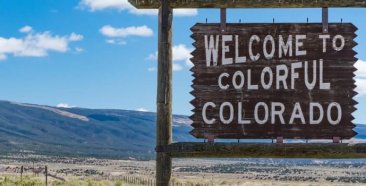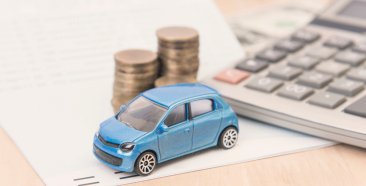
In most cases, the answer is no. But there are many reasons why people should not ignore any product recall and, when it comes to your ride, a product recall may be a safety concern.
Today’s new automobiles are technological marvels that usually deliver a high degree of security and reliability on the road – until you’re on the receiving end of the dreaded recall notice. And people want to know: How will their auto insurance be affected?
Continue reading to learn more about how these recalls can affect you. And there are a lot of them. The latest information shows that the National Highway Traffic Safety Administration cited more than 1,000 safety recalls in 2021, affecting almost 35 million automobiles and other equipment.
People need to read and take a recall notice seriously. Follow the instructions, which usually begin with raking your auto into the dealership for a fix. Luckily, this is free for drivers.
If you own a truck or auto that is more than eight years old, it cannot be recalled. However, if a problem is identified, it should be corrected — you’ll just have to pay for it yourself.
What is a Product Recall?
Automakers, and other consumer goods manufacturers and distributorships, issue a product notice when people, typically through complaints, have identified an issue with some specific product. In many cases, it’s a safety-related defect.
Most people are more familiar with food product recalls. Typically, you’ll hear about a type of food that has been identified as containing some sort of bacteria that is dangerous, or even deadly to some, to consume. Since food is exposed to many potential contaminants from the time it is grown in the field through the preparation and packaging steps, almost any kind of food can become potentially corrupted. In these situations, consumers will be directed to bring their food product back to the point of purchase for a refund – or simply throw it away.
Besides food call-backs, you may remember seeing a notice on TV for certain goods. Many times these are products you would use in your home or for a baby, such as a car seat. These more expensive and more permanent items may generate a recall letter with instructions, like the one you receive for your automobile. In most cases, these items can be returned for a refund.
In other cases, similar to vehicle recalls, a professional needs to go in and either add a part or repair a part to make the product safe again. Although vehicle recalls are voluntary, federal law under the National Traffic and Motor Vehicle Safety Act allows the National Highway Traffic Safety Administration (NHTSA) to require manufacturers to recall vehicles that have safety-related defects or don’t come up to the standards set by federal law.
How a Car Recall Can Raise Your Insurance
If you toss that recall letter in the trash and don’t have the problem corrected, and have an accident, it may affect your car recall insurance rates or even result in a claim denial if it’s proven you neglected to correct known issues that contributed to an accident. Your property damage and bodily injury liability will be negated in this circumstance.
After the problem is corrected, it’s a good idea to provide your insurance company with paperwork documenting that the necessary vehicle repairs have been made. If you’re involved in an accident because of a faulty part that has been recalled, your insurance company can settle the cost with the manufacturer.
Your car’s value is something that’s used to determine its insurance cost. If a recall is widespread and the issue can’t be corrected, for example, it could have a negative impact on the market value. You should check with your insurance company – it’s possible you may be able to decrease your insurance rates, since your car’s value has been reduced.
National Highway Traffic Safety Administration – Stay Informed
The U.S. Department of Transportation’s National Highway Traffic Safety Administration (NHTSA) offers a free online tool that will enable owners to search recall information by Vehicle Identification Number (VIN).
Consumers will be able to instantly determine whether action is required to address an uncompleted safety recall that affects them, as identified by their unique VIN. With the new VIN search feature, consumers will be able to tell whether a specific vehicle is subject to a recall and whether it has received the remedy.
If you don’t have an alert set up you should regularly take the following steps to stay on top of these notices.
File a Complaint
If enough owners file complaints about particular equipment, the NHTSA may launch an investigation. The NHTSA only takes reports that affect the safety of your car.
Check the VIN
Always check to see if there is an open recall already in effect on your auto. The database goes back 15 years.
Sign up for Recall Alerts
You can download the free SaferCar app to your smartphone. Just search in your app store. This will give you an alert or an email if the auto you entered becomes part of a safety recall.

Used Cars and Product Recalls
If you are buying a used car, be sure and check to see if that specific one is part of an open recall and, if it is, find out if it was repaired. Since this is a buyer beware situation, the ultimate owner is responsible for any recalls and repairs. In many cases, for example, the dealership may not be aware of a notice on that car. Dealerships are only required to repair new vehicles with recalls, not the used ones on their lot.
If you find a used car that you really like but it has an unresolved open recall, you may be able to get the manufacturer to repair the car for free. Check the laws in your state. Some states require dealerships to make repairs. And some dealerships may do it because they are interested in selling you the automobile.
What are the most common types of defects?
If you receive a recall letter, you aren’t alone. In 2021, the NHTSA regulated 259 recall campaigns that affected more than 21 million owners in the U.S. As automakers design newer equipment with enhanced features to entice Americans to buy, the causes of defects change.
Typical defects in recent years include:
- Wiring or leaks that cause fire (electrical system)
- Accelerators that break or freeze suddenly and other Powertrain components
- Steering parts that break, causing a loss of control on the road
- Brakes, hydraulic
- Air bags that deploy late or for no reason
Most manufacturers of goods used by the public purchase product recall insurance as part of their commercial or business liability coverage. Product recall insurance helps them pay for the expense of bringing their product to a point where it can be repaired before it harms someone. This product recall insurance pays for the cost of removing a company’s product from the marketplace. Product recall coverage typically covers:
- Customer notification
- Shipping (if an item is returned)
- Storage
- Disposal
- Additional employees if necessary
The Crash Test Factor
The NHTSA publishes a yearly list of vehicles that have been tested for several types of impacts. They assign a grade to each one, usually given as a “five-star” rating, five being the best. A rating is an important consideration that insurance companies use to determine premiums and a higher crash-test rating may result in lower rates.
How long does the car recall process take?
Manufacturers are given 60 days to attend to owners’ needs after a defect is announced. This time starts from the date written on the Official Safety Recall Notice, not from the day the recall is announced. If you didn’t buy your car from the dealer and bought it from an individual, you are still entitled to free repairs from the manufacturer.
If you have any concerns about safety, contact the NHTSA. Established by the Highway Safety Act of 1970, they are dedicated to achieving the highest standards of excellence in motor vehicle and highway safety.
Find Affordable Auto Insurance Online Today
As you make sure you are the safest you can be by paying attention to recall letters, Freeway Insurance can make sure you have the best car insurance for your needs and budget while on the road. Get a fast and free online quote for car insurance, give us a call at (800) 777-5620 or stop by one of our convenient offices for a visit.



